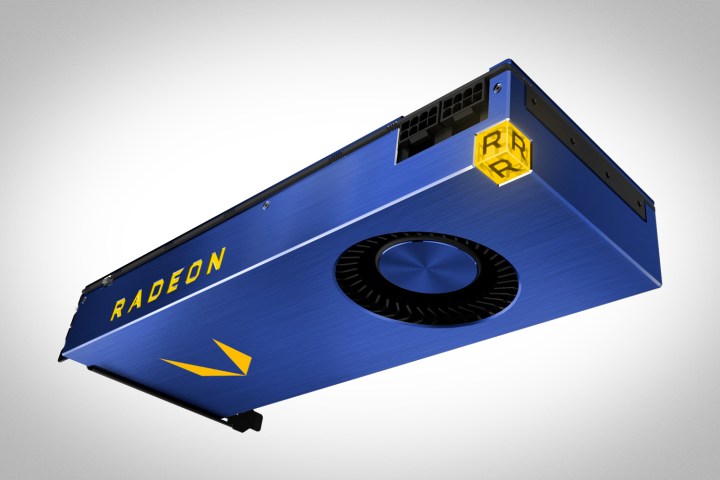
So far, we’re lacking details on Vega, having only seen information on the Frontier Edition cards that are intended primarily for churning through highly technical workloads like machine learning, 3D rendering, and cloud computing. The Radeon Vega Frontier Edition cards aren’t aimed at the typical gamer, which is a good thing if some recently surfaced pricing information is valid, as VideoCardz reports.
The pricing appeared at two sites, Scan UK and Sabre PC, and the Frontier Edition cards won’t be cheap. According to the sites, the air-cooled version will be priced at $1,199 while the liquid-cooled model will come in at a hefty $1,799. For that money, Vega Frontier cards promise up to 13 TFlops of power, which is a TFlop faster than Nvidia’s fastest GeForce GTX Titan Xp.
These cards won’t be snatched up by gamers, but rather will be used by organizations building out computing clusters and who need serious power for artificial applications, 3D rendering, and other demanding computational tasks. AMD provided some benchmarks during its introduction of the new cards showing them to be 70 percent faster than Nvidia’s Titan Xp card in Solidworks, a 3D computer-aided drafting (CAD) applications.
Nevertheless, AMD is claiming that its Vega GPUs for gamers will be even faster. Without any additional details, though, that claim remains unverified. These cards won’t show up until later in 2017, and so AMD has time to perfect the GPUs and bring down pricing to more affordable levels. When Vega does arrive, Nvidia will face the same kind of competitive pressure that Intel is facing from AMD’s Ryzen CPUs — and that’s good new for everyone who plans to be in the market soon for a new PC.



